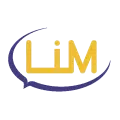
Clear communication is fundamental in healthcare. When language becomes a barrier, the consequences can be serious—delayed treatment, patient confusion, or even life-threatening errors. This is where medical translation services play a critical role. By ensuring that patient materials, medical records, and healthcare communications are accurately translated, these services help providers deliver safe, effective, and inclusive care.
At Languages in Motion, we support healthcare institutions across Canada and internationally by delivering certified, compliant, and culturally sensitive translation solutions in over 200 languages. This article explores the importance of medical translation services, who needs them, what types of documents are involved, and what to look for in a qualified provider.
Why Medical Translation Services Matter
Medical content requires 100% accuracy. Even a small error in dosage instructions, patient consent, or a clinical report can result in serious outcomes—misdiagnosis, incorrect treatment, or legal repercussions.
Professional medical translation services help to:
-
Improve patient safety and comprehension
-
Ensure compliance with healthcare regulations
-
Increase access to care for non-English speakers
-
Support international collaboration between medical teams
-
Streamline documentation, billing, and insurance processes
-
Build trust with diverse patient communities
Accurate translation reduces readmission rates, supports health equity, and enables providers to deliver more effective, personalized care.
Who Needs Medical Translation Services?
Hospitals and Clinics Needing Patient Communication Support
Healthcare providers working with diverse populations need multilingual versions of intake forms, informed consent documents, aftercare instructions, and discharge summaries. Accurate translation improves communication, enhances patient understanding, and reduces liability.
Pharmaceutical Companies and Healthcare Translation Compliance
Pharmaceutical organizations rely on precise translations for drug labels, product packaging, research protocols, and marketing materials. Regulatory bodies worldwide require certified translations to approve new products and clinical studies.
Medical Device Manufacturers Requiring Multilingual Documentation
Companies producing diagnostic or treatment devices must translate technical manuals, user guides, safety instructions, and regulatory filings. Precision is essential to ensure safe usage across languages and markets.
Health Insurance Providers and Policy Translation
Insurance companies must communicate policies, benefits, claims processes, and coverage rules to clients from various language backgrounds. Clear translations reduce disputes and improve service efficiency.
Clinical Trial Translation for Research Organizations (CROs)
Global clinical trials require multilingual communication with participants. Accurate translations of consent forms, instructions, and questionnaires ensure ethical compliance and high-quality data collection.
Public Health Agencies and Multilingual Healthcare Campaigns
Public health institutions use translation to deliver essential health messages, particularly during emergencies. Translated campaigns increase community outreach, health literacy, and preventive care.
What Types of Documents Do Medical Translation Services Cover?
-
Patient records and case histories
-
Informed consent forms
-
Discharge summaries
-
Clinical trial documentation
-
Pharmaceutical packaging and inserts
-
Medical device manuals
-
Health insurance documents
-
Public health education materials
-
Training manuals for healthcare professionals
-
Billing, coding, and claims forms
Commonly Translated Languages in Healthcare
Medical translation is frequently requested in:
Spanish, French, Arabic, Mandarin, Portuguese, Russian, Hindi, Korean, Vietnamese, Farsi, Somali
Languages in Motion supports over 200 languages to meet the needs of Canada’s diverse population and global healthcare projects.
What to Look for in a Medical Translation Provider
Certified Translators with Medical Experience
Your translation provider should have in-depth knowledge of healthcare terminology or work in collaboration with medical experts. Accuracy depends on understanding complex phrasing and technical concepts.
Certified Translators
Ensure the service uses certified professionals with credentials from recognized organizations such as the ATA, CTTIC, or ISO-compliant systems. Certification reflects quality, professionalism, and accountability.
Compliance with HIPAA, PIPEDA, and Other Standards
The provider must be familiar with privacy and healthcare regulations such as HIPAA (USA), PIPEDA (Canada), and GDPR (Europe), along with local standards. Regulatory compliance protects your organization and your patients.
Reliable Quality Assurance in Healthcare Translation
High-quality medical translation involves more than one step. Look for providers that follow a rigorous process: translation, editing, proofreading, and expert review to ensure accuracy and consistency.
Confidentiality and Secure Medical Data Handling
Healthcare information is highly sensitive. Your provider should maintain strict confidentiality agreements and follow secure document handling protocols that align with medical privacy laws.
Technology Integration for Medical Localization
Leading providers use translation memory tools, terminology databases, and project-specific glossaries. These technologies ensure consistency, reduce costs, and speed up delivery.
Benefits of Professional Medical Translation Services
-
Minimizes legal and compliance risks
-
Builds stronger patient relationships
-
Improves health outcomes through clearer instructions and documentation
-
Facilitates global pharmaceutical and clinical research operations
-
Reduces disparities in healthcare access
-
Supports culturally competent care and patient engagement
-
Promotes inclusive health communication across communities
How to Choose and Get Started with Medical Translation Services
To find the right medical translation service:
-
Ask for sample projects and healthcare client references
-
Confirm experience with your specific document types and specialties
-
Review their confidentiality and data security policies
-
Understand their revision and quality control workflow
-
Ask about standard turnaround times and rush service options
-
Ensure they cover the languages most commonly spoken by your patients or partners
-
Consider developing a long-term partnership for consistency in tone and terminology
Conclusion: Why Healthcare Providers Need Medical Translation Services
In today’s healthcare landscape, accurate communication across languages is not optional—it’s essential. Medical translation services ensure that all patients, regardless of language, receive care that is safe, respectful, and fully understood.
At Languages in Motion, we are proud to support hospitals, clinics, pharmaceutical companies, and health organizations with professional medical translation services tailored to their needs. With certified translators, regulatory expertise, and a commitment to quality, we help you meet the highest standards in healthcare communication—one word at a time.

